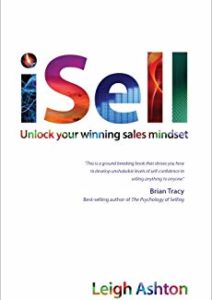Essential Sales Tasks We Should Do, But Often Don’t
It happens to all of us. We know the things that we should be doing, but neglect to actually do them. The same is true for salespeople. Essential tasks that are important for overall sales generation often get pushed to the wayside. “Sometimes salespeople know how to do something, but they just don’t do it!,” said Leigh Ashton, who is interviewed by John Golden.
In this sales expert interview, learn about:
- Essential sales tasks that aren’t done enough
- The importance of reintegrating these tasks into everyday work life
Having a Sales Mindset
“Having a good mindset isn’t just about having a healthy mindset while working. It’s about your career as a whole, relationships outside of work, psychological training, health, sports, and other activities of daily living,” said Ashton. Having a healthy mindset means practicing what you do, even when you’re not doing it. “How often do you practice the thing that puts bread on your table?” asks Ashton. Practice could mean things like reading books on psychology and understanding people, and then applying it to your next sales call. It could be practicing good sleep hygiene so that you are well rested and prepared. These kinds of things are readying you for work, even when you’re not actually working.
Sales Training Done Properly
There are also problems with how salespeople are trained. Often, companies will provide behavior training, telling their sales staff how to do something. This form of teaching doesn’t actually mean they will implement what was taught. It focuses on teaching the action and skill, but not implementation. Proper training involves integrating thinking and feeling to create a healthy sales mindset. This mindset is what will encourage the sales staff to complete the tasks that they were trained how to do.
Learn from Experience
One of the best qualities that a salesperson can have is that they are willing to “give it a go.” These kinds of people are okay if things don’t work out as planned. They see the experience as a learning opportunity to grow from later. These salespeople don’t let their ego get the best of them. With determination and perseverance, they perfect things as they go along. Often, they are also proactive by nature as opposed to reactive, staying one step ahead of potential problems. Ashton describes this “shortcut culture” that we have become accustomed to. “People give up too easily on things,” she said. “Learning from the experience and tweaking it, and doing it over a long period is how salespeople grow. You have to try something at least three times before you even know how to tweak it, let alone utilize it to its full potential.“
It is equally important for organizations to support this kind of “learn as you go” attitude. If a sales manager puts pressure on their sales staff to perform, but gives them no time to perfect it, they will never see the results they ultimately want. It is okay to try and not get it right. Creating an atmosphere that supports this modality of learning will eventually lead to a better process and more sales.
About our Host
John Golden
John is the Amazon bestselling author of Winning the Battle for Sales: Lessons on Closing Every Deal from the World’s Greatest Military Victories and Social Upheaval: How to Win at Social Selling. A globally acknowledged Sales & Marketing thought leader, speaker, and strategist. He is CSMO at Pipeliner CRM. In his spare time, John is an avid Martial Artist.








Comments